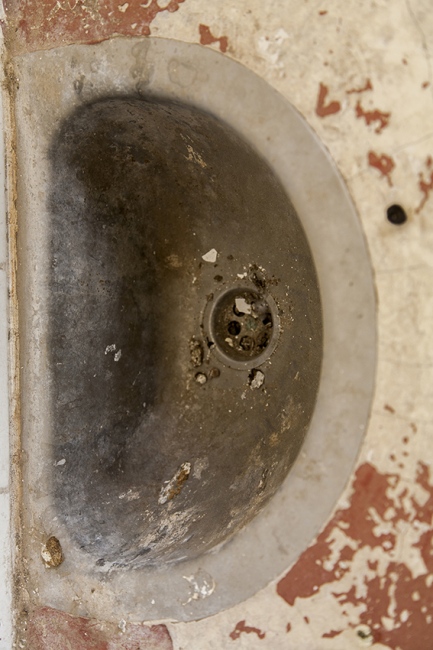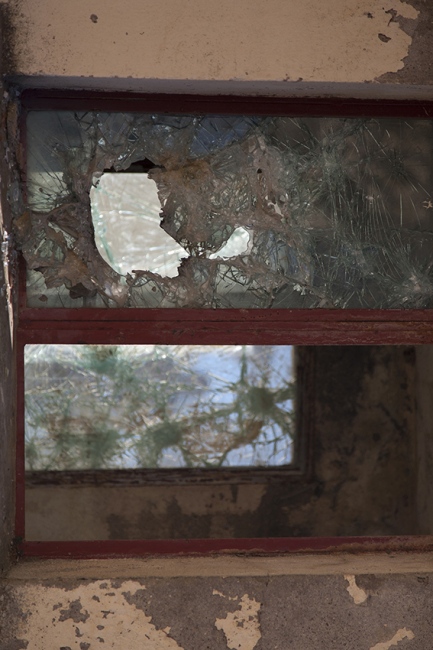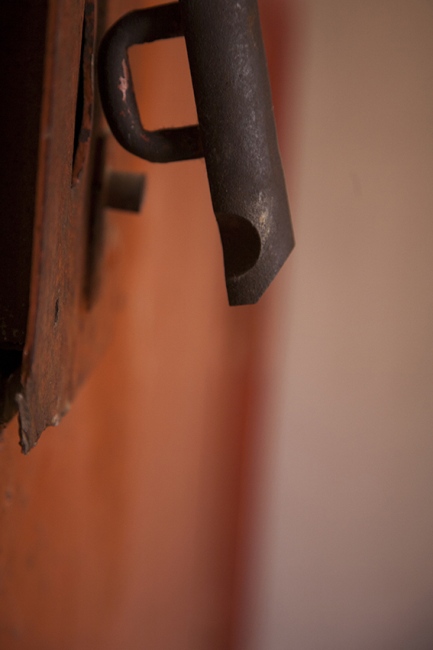IMPLICIT
When I conceived this project I had in mind questioning the existing social perception of photography as the visual medium that allows to objectively represent reality, freezing a moment in the two dimensions of the paper: In my view the image represented is a new reality emerging from the rupture with reality, raising the picture into a pictorial space, accented by the composition based on lines and planes, textures and color fields.
On the other hand, I am convinced that the written forms of language are the best example of abstraction that man has conducted throughout history. They progressively evolved over centuries of paintings into symbols, up to a complex system in which the abstract signs represent articulate sounds.
Through the photographic reconfiguration of the reality I want to capture, underlying, the representation of signs: the letters of the Western alphabet. The purpose of building images in this way is to combine two forms of reading the image simultaneously. Each photo will remain autonomous, a complete work in itself, with its aesthetic values.
However with the overall view of several juxtaposed photographs, and the underlying representation of letters, a new reality is created, which we could call virtual, with a new superposed meaning, that does not void, but on the contrary, complements the original message. This new reality will consist of words that are short sentences, questions that I throw at the viewer. Thereby the reading of the photographs must be made following the guidelines of the artistic composition and simultaneously the linguistic composition. But the oral reading of the photographs will be subliminal, not induced, because the text is implicit. The viewers who approach the pictures are invited to read them, but they do not have to feel obliged to do so. It is just a matter of their perception and abstraction capacity.
In this sense, in the first exhibition of this line of work, in 2008, at Salamanca Arts Centre, Domus Artium 2002, Da2, I used the composed text with photographs (seen in the projection accompanying this exhibition) to question the social need that arises today of learning to view images and to read them, because we are in a world dominated by visual communication. The viewers will wonder not only what they see or where it came from. In addition they will be invited to question what they see and how they see it through a combination of signs that make up two different languages, plastic and verbal.
In the present series, I wanted to add a new nuance: I looked for a connection between where the images were taken and the questions that I raise. The prison in Zamora, my hometown, has been abandoned for several years. Four years ago the great movie "Cell 211" was filmed there. After that moment of glory, vandalism placed it in its sights. These photographs were taken there. The texts that I have composed with them are: "¿De qué vas?" "“ "¿O ya estás de vuelta?". These questions may be taken in a literal sense: "What's up?" "“ "Or are you already back?"... To a place that nobody wants to go? But beyond the literal English translation, these sentences have other meanings in Spanish: "¿De qué vas?" inquires the viewers in a very informal language about what is their attitude towards life; it could be posed as "where are you heading to in your life?" ¿O ya estás de vuelta? question is if the attitude that has the viewer is passive, or better yet, if it has become passive for some reason, say, "don't you care anymore?". Prison is a dehumanized space, in the widest sense, in which the misfits, or those whom society turns into incompatible, are set apart from society. What kind of attitude is that which leads us to such situations?
Ãlvaro Pérez Mulas.
Valladolid, June 3, 2015
























